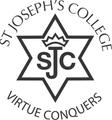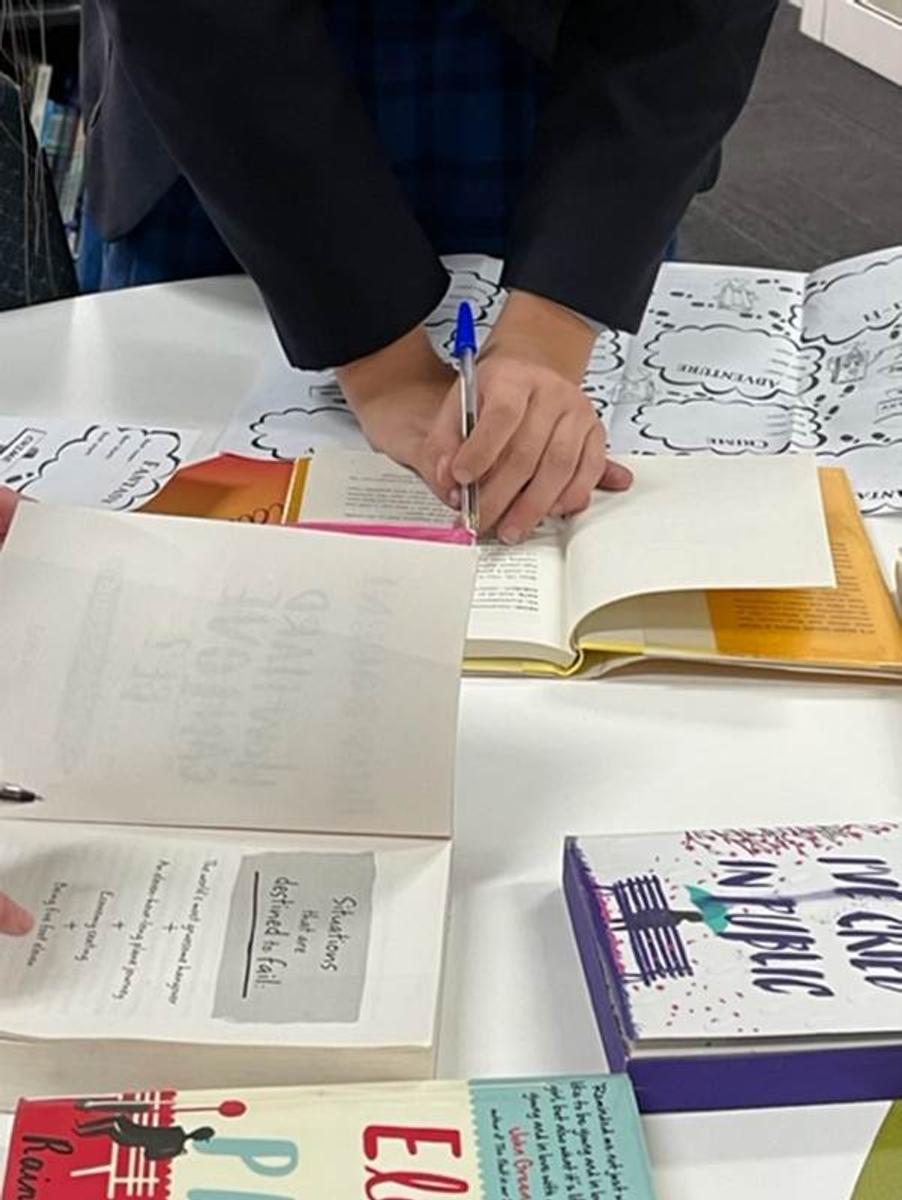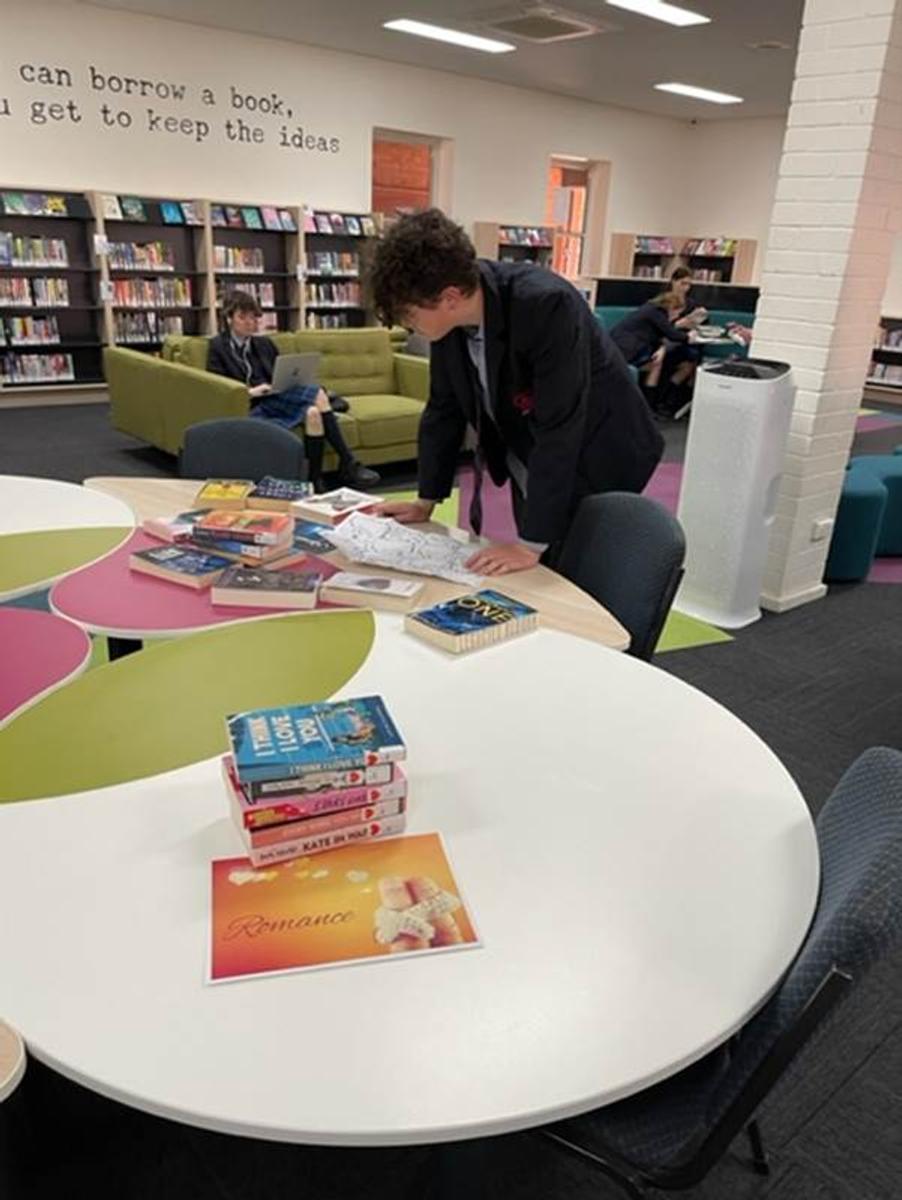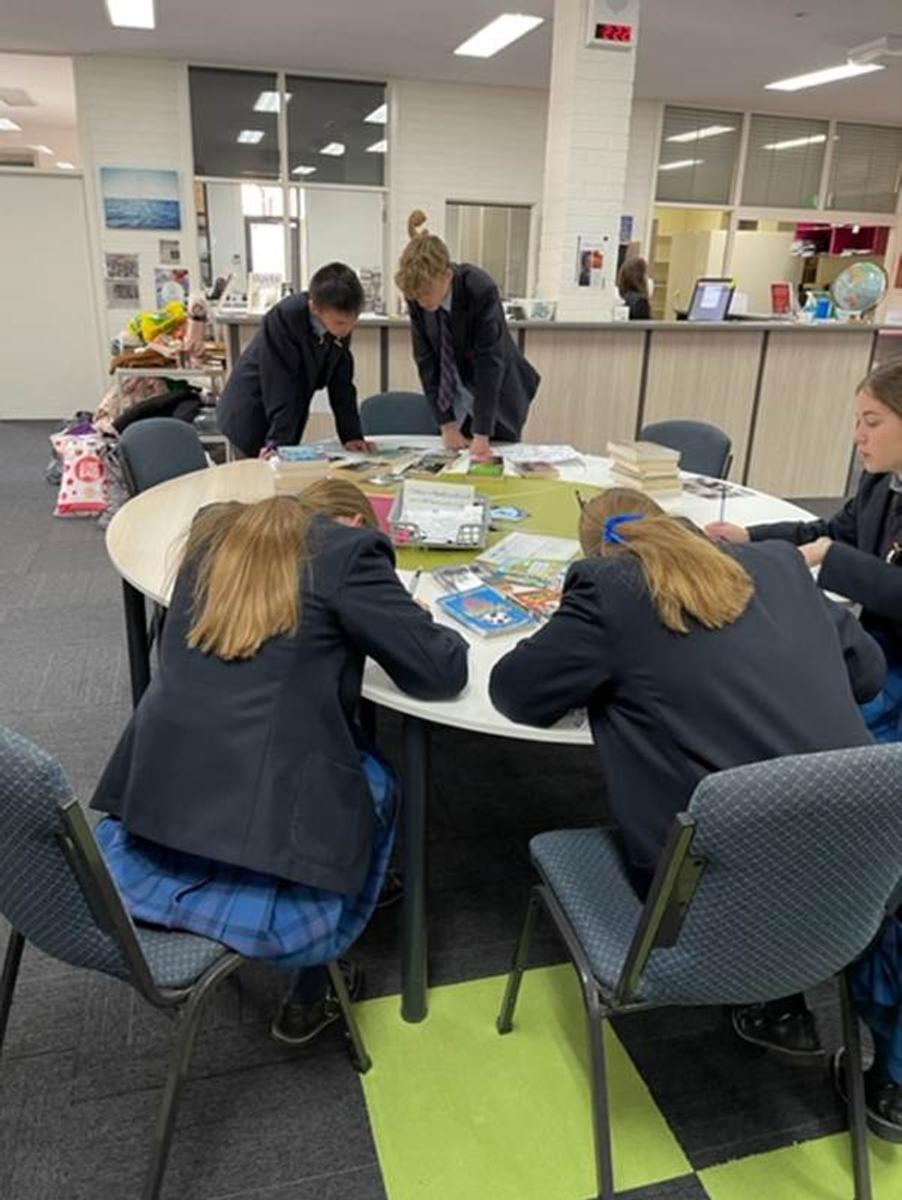ENGLISH

TUTORING
English tutoring commenced in week 3 and is available in the library from 3:40pm to 4:20pm each Tuesday.
Tutoring is available to all students and is a place where they can undertake supervised English study or obtain specific assistance from a teacher with their work. Everyone is welcome!
Suppose parents have specific queries about how to promote home-study or foster independent student learning in the subjects of English or Literature. In that case, I welcome you to contact me by email for strategies and advice.
A detailed home-study guide for English is available for all students at each year level, and teachers are happy to provide acceleration and best practice strategies to promote optimal learning outcomes for students.
Finally, our students benefit immensely from basic, regular reading, so where possible, please encourage your child to read at least 15-20 minutes of analogue text (of any form) each weeknight to both normalise reading practice and hopefully establish a love of reading!
ENGLISH NEWS SEMESTER 2
Welcome to another semester of English. Students in each year level have been industriously working on their oral and written communication skills and having a lot of fun reading, talking about, and acting out all sorts of plays and novels. Below is what each year level is up to in Term 3.
YEAR 7
Students are undertaking novel study in class groups. Novels include Coraline, No Gun for Asmir, The Lion, The Witch and The Wardrobe and selected short stories. Students are practising written expression and working hard on their grammar and expression skills.
YEAR 8
This term, students are analysing The Book Thief. They are refining their written expression through processes of drafting and editing. Their grammar, reading, comprehension, and expression skills are practised in routine weekly classes specifically targeted at elevating the fundamental literacy skills required in VO and VCE.
YEAR 9
Students are undertaking a study in the gothic classic, The Strange Case of Dr Jekyll and Mr Hyde. The study includes an introduction to essential analytical and written expression skills the students will need in Years 10, 11 and 12. Further, students are exposed to a very different social, cultural, and historical genre in Robert Louis Stevenson’s masterful and much-loved tale of the darker side of human nature.
YEAR 10
Year 10s are getting their first academic experience of Shakespeare in their study of Romeo and Juliet. The Bard’s most famous tragedy will be brought to life by The Complete Works Theatre Company in week 6 of the term at the Mercy Theatre so that students may have an all-round experience of studying drama on the page and the stage.
YEARS 11 AND 12
Semester 2 brings with it the comparative study of novels and film in VCE. Year 11 students are fervently both acting out and analysing Shakespeare’s harrowing iteration of the corruptive nature of power, Macbeth. They will compare the play to V. Amorim’s dramatic film, Good, in which the hero protagonist succumbs to the Nazi elite.
Year 12 students are undertaking a similar comparative study between the oneiric novella Ransom, Malouf’s fervid rendition of a little-known portion of the Iliad, and The Queen, a saccharine retelling of England’s response to the death of Diana, Princess of Wales. Students are preparing for the end of year exam in earnest. Each task is directed at enabling them to directly practice the skills they will need for the three-hour exam at the end of the semester.
LITERATURE UNIT 1
Students are about to pen their own noir detective story. They have been immersed in the gritty world of private eyes and femme fatales. They have learnt the strictures of each character type and the language relevant to the era and mode of their set text, The Maltese Falcon.
Ms Joelene Cappola
English Learning Area Facilitator
THE READING GAME
My Year 9 English class took part in ‘The Reading Game’ during a visit to the library earlier this term. This game encouraged students to ‘judge a book by its cover’ and select a book to read for pleasure. Small groups of students visited stations displaying books of a particular genre type. Following a fast-paced ‘book look’, they recorded their favourite front cover, blurb and opening paragraph. Students were encouraged to select reading material from outside their normal areas of interest to borrow and read for pleasure.
Mrs Jodie Noblet
Learning Pedagogy Leader, History, English, Economics Teacher



